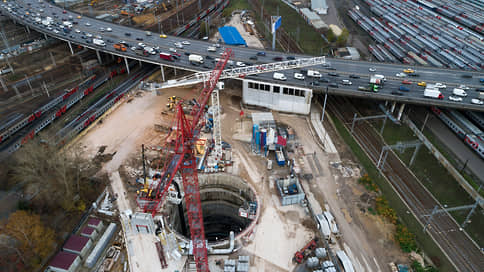Justify and invest – Newspaper Kommersant No. 186 (7387) dated 10/07/2022
[ad_1]

The Ministry of Economy proposes to re-adjust the approach to assessing the effectiveness of budget investments in construction and reconstruction. In order to include state construction projects in the Federal Targeted Investment Program (FAIP), the department wants to evaluate in detail the initiatives of colleagues in the government according to ten criteria, including economic effect, the need for direct state participation and the impact on achieving national goals. The previous assessment methodology proved to be ineffective and allowed financing of almost all the construction projects proposed by the ministries. Now the authorities expect to abandon unnecessary objects and prevent the start of new unfinished construction projects. Given the budget deficit, this will allow spending to be concentrated on the fulfillment of social obligations and on economically promising projects.
As Kommersant found out, the Ministry of Economy proposes to adjust the decision-making system on budget financing of state construction projects from 2023, follows from the draft government decree prepared by the ministry. Thus, the department has prepared new rules for assessing the effectiveness of new capital construction facilities, as well as in case of a change in the capacity of those under construction by more than 10%, to include them in the FTIP (this is 4% of all government spending). Recall that in the summer the government approved a temporary methodology for assessing the prospects for the construction of civilian facilities (the Ministry of Economy deals with the assessment) and construction projects under the state defense order (they independently carry out an assessment and present the results to the Ministry of Economy). However, in relation to civilian objects, the de facto design turned out to be ineffective.
On the one hand, the inclusion of the Ministry of Construction in the approval process, which was supposed to consolidate all applications for investment projects in the “one window” mode, actually complicated the work and excluded the possibility of prompt approval of projects due to the inability of the Ministry of Economy to work directly with departments. Secondly, the efficiency criteria themselves turned out to be non-working. Recall that in order to include construction projects in the FTIP, it was necessary to take into account the need for created capacities and the impact of the project on the integrated development of territories. However, in practice this was not enough. As the Ministry of Economy explained to Kommersant, most of the objects were highly rated, since the variance of the final assessment according to the two criteria is quite low. Thus, out of applications for 151 capital construction projects, 91 received positive conclusions, the rest were either under consideration or did not require evaluation at all, since they are not new objects. Meanwhile, in the face of a budget deficit, the fulfillment of the state’s social obligations and plans to restart the investment cycle (largely due to budgetary incentives) increases the demand for ranking and prioritizing state construction projects.
In the new structure, the Ministry of Economy proposes to tighten the selection of projects and evaluate them in three areas – the need for an investment project in state financing, its impact on the achievement of national goals and the economic effect. There will be ten criteria in total: in particular, the Ministry of Economy is interested in the demand for an investment project, whether such facilities have already been built (are there enough schools and hospitals in the region, whether enterprises produce similar products in sufficient volume), why the facility requires direct participation of the state and whether there is a possibility of extra-budgetary funding . It is also important to have infrastructure (roads, gas and water pipelines) so that during the construction process it does not turn out that additional costs will be more expensive than the object itself. The Ministry of Economy also proposes to optimize the evaluation procedure: the departments initiating the project will send materials directly to the Ministry of Economy, bypassing the Ministry of Construction (exceptions will be projects under the departmental program “Construction” – they are taken into account in the sectoral state programs of the ministry).
According to Deputy Economy Minister Sergei Nazarov, the methodology will allow departments to carry out self-control on investment projects proposed for implementation, and the government to eliminate unreasonable costs and reduce the number of refusals to implement a project after it has begun. “Efficiency assessment is, in fact, a checklist for making a decision on the implementation of an investment project at the expense of the federal budget, the answer to the question of the need to create a capital construction facility in a specific location with specified parameters. The economic effect of investing one budget ruble on gross value added in the economy will be evaluated,” the official adds.
[ad_2]
Source link






